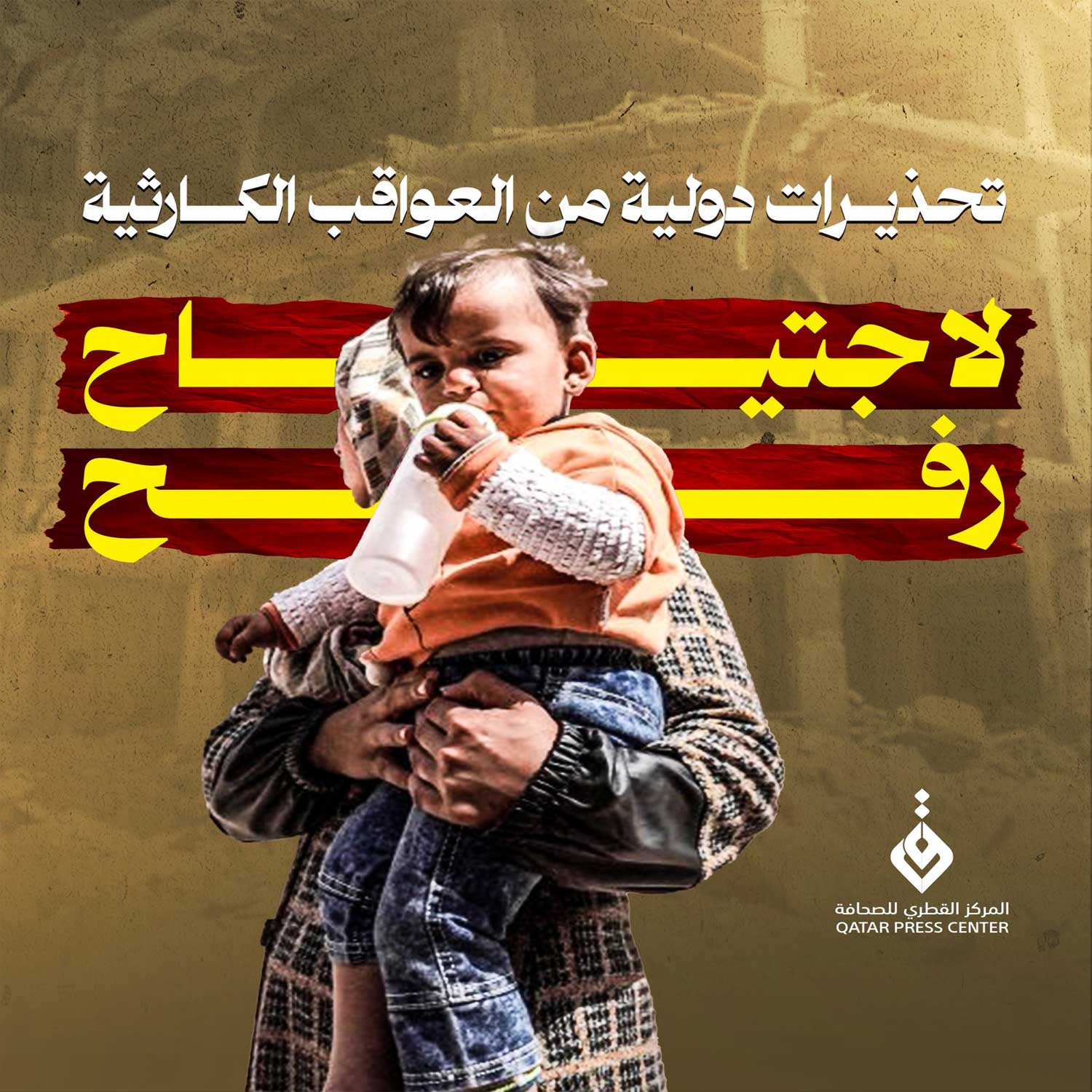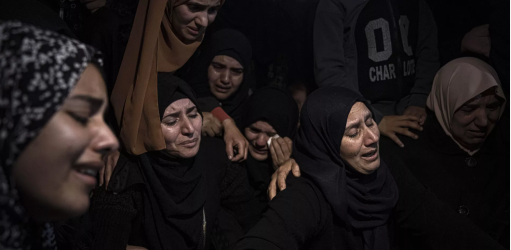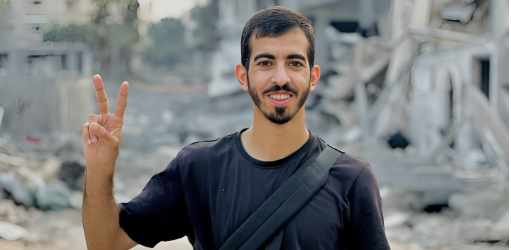This is a notification message.

Doha - 8 May 2024:
International humanitarian organizations have warned of the catastrophic humanitarian consequences of the continued Israeli attack on the city of Rafah in the southern Gaza Strip. A report by the British newspaper The Guardian quoted Tamara Al-Rifai, Director of External Relations at the United Nations Agency for Palestinian Refugees (UNRWA), warning against a military incursion into Rafah, which would lead to a “bloodbath.” Because of population density. Al-Rifai confirmed that another displacement situation is looming on the horizon, and it is already causing a state of panic and anxiety among the extremely vulnerable population. There are about 1.5 million people in Rafah, after repeated Israeli evacuation orders forced them to move south towards areas that were previously classified as safe. According to The Guardian, Israeli orders demanding the departure of an estimated 100,000 people east of Rafah were accompanied by an increase in air strikes by the Israeli army on those sites. In a related context, the Rafah and Kerem Shalom crossings, the only routes for aid to enter the Strip, were closed on Monday, without a clear indication of when they could be reopened. Tamara Al-Rifai confirmed to the British newspaper that this is very disturbing. Because these two crossings are the only ones open to the arrival of humanitarian aid and commercial goods. She said: “If the crossings are closed, this means that there will be no active commercial or humanitarian supply lines, and therefore people in Rafah will not be able to access humanitarian aid. “This means we can expect the famine to extend south.” She stressed that the closure of the Rafah crossing raised “two main concerns” for UNRWA, which supervises a large part of the humanitarian response entering Gaza. One was that the supplies we already had in Rafah were low; Due to the decline in the flow of aid, which we have been warning about for a long time, according to the same spokeswoman. She added: In any normal situation we would be talking about contingency plans, but given how difficult it is for supplies to get into Gaza, we do not have full warehouses full of goods ready to be transported. Even if we did, the fact that the Rafah crossing is closed - and this is the only crossing for fuel - means that Even if we had a base of supplies, we wouldn't necessarily be able to transport them; Due to low fuel supplies. The report quoted Areej Al-Saqqa, from the Euro-Mediterranean Human Rights Observatory, as saying that she and her husband fled from Rafah to the central region of Gaza in the early hours of the morning, after the situation became very difficult. She added: The roads were crowded with others who fled amid fears of an attack. Areej Al-Saqqa said: People are very afraid, and the prices of goods have risen again with the closure of the Rafah crossing. The prices of basic materials, such as tomatoes, potatoes, and bottled water, have doubled. For his part, Hisham Muhanna, from the International Committee of the Red Cross, confirmed that his organization, like UNRWA, does not intend to transfer its operations outside Rafah, but fears that the escalation will lead to “difficulty in helping anyone.” He said: “There is an increasing burden on humanitarian workers inside the Palestinian Rafah, while the space available for us to work is shrinking.” He added: “Providing a meaningful humanitarian response on the ground may become elusive. The situation has become precarious in areas receiving evacuation orders.” He continued: Some families in the southern part of Gaza have been displaced five times since last October, and those who fled east of Rafah were arriving in areas with weak infrastructure, or no infrastructure at all, and are already struggling to accommodate waves of internally displaced people. He added: They were already living with a lack of sanitation and high rates of waterborne diseases, as well as a lack of health care facilities and workers, and along with the ongoing stress and fear, we are seeing an increase in the number of people dying; Due to infectious diseases. For her part, Tamara Al-Rifai, an UNRWA official, explained that the closure of the two crossings into Gaza led to increased pressure on a pier under construction by the US army, which aims to increase aid supplies to the Strip. The Secretary-General of the United Nations, António Guterres, had warned that an Israeli “invasion” of the city of Rafah in the southern Gaza Strip would be “unbearable,” calling on the Israeli government and Hamas to “make an additional effort” to reach a truce.

تستقبل نساء غزة يوم الأم...

تواصل الآلة الإعلامية الإسرائيلية حربها...